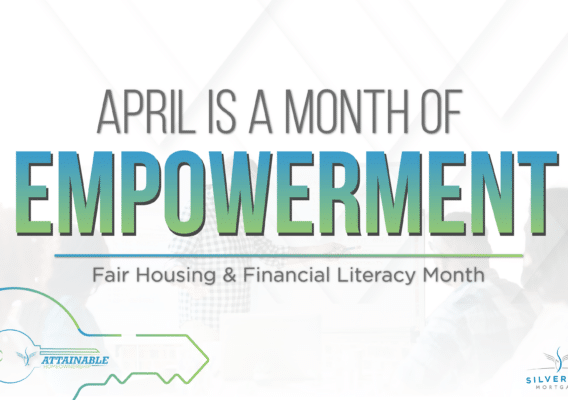While the mortgage process may seem daunting, working with the right people can make a huge difference in whether your experience is a pleasant one. As you navigate securing your home loan, you’ll be dealing with numerous professionals who are there to help you along the way. In this blog post, we’ll break down who these people are and what they do.
From the loan originator, processor, underwriter, and closing agent to a real estate agent, builder, appraiser, and inspector – you’re going to work with many whose job is to get you into your home as seamlessly as possible.
Perhaps the most consistent relationship that you’ll foster throughout your home purchasing experience is with a mortgage loan originator (MLO). The loan originator will be your point of contact and plays an important role in getting you into a home as stress-free as possible. Not only will your MLO help you explore your financing options, but they will also be with you from start to finish. In a nutshell, your MLO will help you find the right home loan program, assist in gathering all necessary documents, and monitor the progress of the loan all the way up to closing. They work directly with many of the other professionals that we’ll discuss later to ensure that your loan is originated properly. When deciding on an MLO, be sure that they are licensed with the Nationwide Mortgage Licensing System and Registry (NMLS), which proves that they have passed all of the legally required courses and tests in the state where you want to purchase your home. Ideally, you want someone who is going to thoughtfully review your specific financial situation and help you feel confident about your decisions. You can find a Silverton Mortgage MLO here to get started.
While it’s not required, you may also find yourself working with a real estate agent. Whether it’s the listing agent representing a home you’re eyeing or your buyer’s agent working to find that dream house, a real estate professional can be invaluable in helping you settle on a property. You may not have much interaction with a listing agent but will undoubtedly develop a relationship with your agent as you work together to explore neighborhoods, make the appropriate offer, and possibly negotiate a deal. One of the biggest advantages of hiring a real estate agent may be their knowledge of the federal, state, and local documentation requirements. Your agent should be far more familiar with the necessary paperwork so that you can get to the closing table with as few bumps as possible along the way. It’s certainly not a requirement to have a real estate agent assist with the purchase of your home, but it is highly recommended.
You shouldn’t have too much contact with the sellers of the property, but every now and then, if there are multiple offers, a personal letter to the current homeowners may give you an edge. If you’re looking at purchasing a new construction, it is much more likely that you’ll develop an ongoing relationship with your builder. Working with a company that you feel comfortable with is important as you determine your expectations. Throughout the process, you’ll discuss design, price, upgrade options, and much more as you work toward the common goal of building your home. Make sure that you choose a builder that is licensed and has a good reputation. Do your homework by researching past construction projects and comparing numerous companies. Being on the same page throughout the length of the project is important and will make the entire task much more pleasant for everyone involved.
When it comes to your actual mortgage loan, another likely relationship that you may encounter is with a processor. Once you submit all the required documentation, it’s the processor’s job to piece it all together. As they work to package your loan, it’s common that they’ll have to reach out for additional information. They may also order appraisals and inspections as needed, pull your credit, and document your assets. While some never interact with the person who is processing their loan, it can be beneficial to foster this relationship as they work to help you get approved for a mortgage. Once a processor’s work is complete, they submit your application package to an underwriter and follow up on requests as needed.
Once your loan gets to an underwriter, it’s their job to evaluate and assess your financial situation and whether you have the ability to take on the loan. They’ll verify your identity, check your credit history, and look at other information, such as your bank statements and tax returns. While your relationship may be limited with the person who underwrites your loan, it’s important to respond to any questions or requests for additional information that they have as swiftly and honestly as possible.
After your offer is accepted on a home, it is common to get a home inspection. While a home inspection isn’t required, it’s generally a good idea as it helps identify any major issues regarding your potential home. Usually, an inspector thoroughly examines the home and provides a full report. It’s common for a homebuyer to accompany the inspector as they conduct their work. However, with COVID-19 concerns, remote inspections are taking the place of their traditional counterparts in many instances. This means that human interaction may be replaced with your inspector going through the home solo and calling or emailing you with their findings. It’s still important to maintain open lines of communication and not be afraid to ask questions as needed.
Finally, the last people that you’ll meet along the way to homeownership are those at the closing table. Beforehand, a closing agent will make sure that all documents are prepared and ready for the closing day. They’ll send over any paperwork that you’ll need ahead of time and make sure you know what to bring on the day of. On closing day, you will most likely encounter the closing agent, a title company representative (if different from the closing agent), the seller, and the real estate agents (if involved).While it may seem intimidating, keep in mind that the day of closing is typically a smooth process because, in most cases, all that needs to be completed is the execution of the closing documents.
While many mortgage companies send their loans off to outside entities as needed throughout the process; Silverton Mortgage is proud to originate all loans in-house. This means that the loan originator, processor, underwriter, closer, and anyone else needed to approve your loan are employees of Silverton Mortgage. This keeps everyone on the same page. Knowing all the roles involved in each step of the mortgage process and having an idea who you may potentially meet along the way means that you’ll have peace of mind as you navigate your way to homeownership. If you have more questions about how to get started with the home loan process, visit silvertonmortgage.com.
You Might Also Like

The Foundation of Well-being: How Homeownership Builds More Than Just Equity

Navigating the Mortgage Maze: The Mortgage Process Simplified

